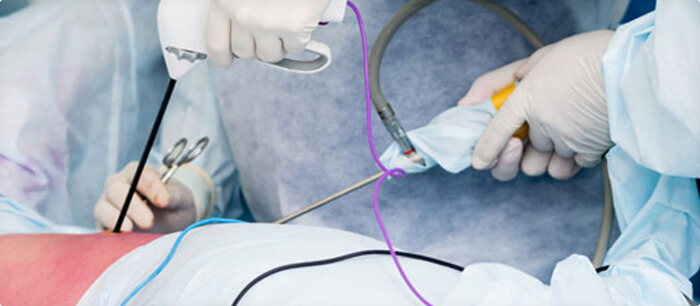Make an appointment
Surgical procedures on offer
- All major oral cavity tumour resections (Composite Resection)
- All types of Maxillectomies for sinonasal tumours.
- Flap reconstruction including free fibula, free radial forearm flap, and other rotation flaps for reconstruction.
- All types of neck nodal dissections.
- Thyroidectomies and parotidectomies for thyroid and parotid tumours.
- Total laryngectomy with tracheoesophageal prosthesis for laryngeal cancers.
- Total laryngo-pharyngo-Oesophagectomy for hypopharyngeal cancers.
- Temporal bone resection and other skull base tumour resections.
- Open and VATS (Video-assisted thoracoscopic surgery) lobectomy for lung cancers.
- Pneumonectomy for lung cancers.
- Sleeve lobectomy for endobronchial tumours.
- VATS lung mastectomy.
- VATS thymectomy and other mediastinal mass resections.
- VATS Pleurodesis for malignant pleural effusion.
- VATS esophagectomy for oesophageal cancers.
- Modified radical mastectomy.
- Breast conservation surgery.
- Breast oncoplastic surgery.
- Trans thoracic oesophagectomy with 2 field and 3 field node dissections.
- Gastrectomy with D2 dissections.
- All types of colectomies for colonic cancers.
- Low and ultra-low anterior resections for rectal cancer.
- Sphincter sparing inter-sphincteric rectal resections
- Abdominoperineal resections and extralevator abdominoperineal resections.
- Retroperitoneal tumour resections including multiorgan resections.
- All types of hepatectomies for liver tumours
- Radical cholecystectomy for gall bladder cancers.
- Whipple procedure for pancreatic and duodenal tumours.
- Whipple procedure with vascular resections and reconstruction.
- Central pancreatectomy of pancreatic body tumours.
- Distal pancreatectomy.
- Splenectomy.
- Radical nephrectomy for renal tumours.
- IVC thrombectomy for complex renal tumours with IVC thrombus.
- Nephron sparing surgery /Partial nephrectomy preserving part of kidney in renal tumours.
- Adrenalectomy for adrenal tumours.
- Retroperitoneal node dissections for testicular tumours.
- Radical cystectomy for urinary bladder cancers.
- Neobladder reconstruction after cystectomy in urinary bladder cancers.
- Total and partial amputation of penis for penile cancers.
- Inguinal node block dissection for penile cancers.
- Radical hysterectomy for cervix cancer.
- Staging laparotomy for endometrial cancers.
- Cytoreductive surgeries for ovarian cancers.
- Radical vulvectomy for vulval cancers.
- Pelvic Exenteration for advanced/ recurrent pelvic tumours.
- Limb sparing surgeries for bone tumours.
- Limb sparing surgery for soft tissue sarcomas.
Melanoma.
Squamous cell carcinoma and basal cell cancer of skin.
Specialised procedures
Peritonectomy with Hyperthermic intraperitoneal chemotherapy (HIPEC) for peritoneal carcinomatosis in tumours like pseudomyxoma peritonei, ovarian cancer, colorectal cancers and others. In tumours with peritoneal disease such as above the entire peritoneum is surgically removed along with the primary tumour and intraoperatively chemotherapy is instilled into the abdominal cavity under hyperthermic conditions (40-41 C )using specialized equipment to kill the cancer cells.
Tumours in the thorax including lung cancers, mediastinal tumours and oesophageal cancers are resected without opening the chest by using thoracoscopy which results in very early post-operative recovery.
In case of tumours involving the bones of lower limbs or upper limbs instead of removing (amputation) the entire bone only the part of the bone with tumour is removed and the bone is reconstructed using a prosthesis and the patient is made to walk again or use his arms again.













